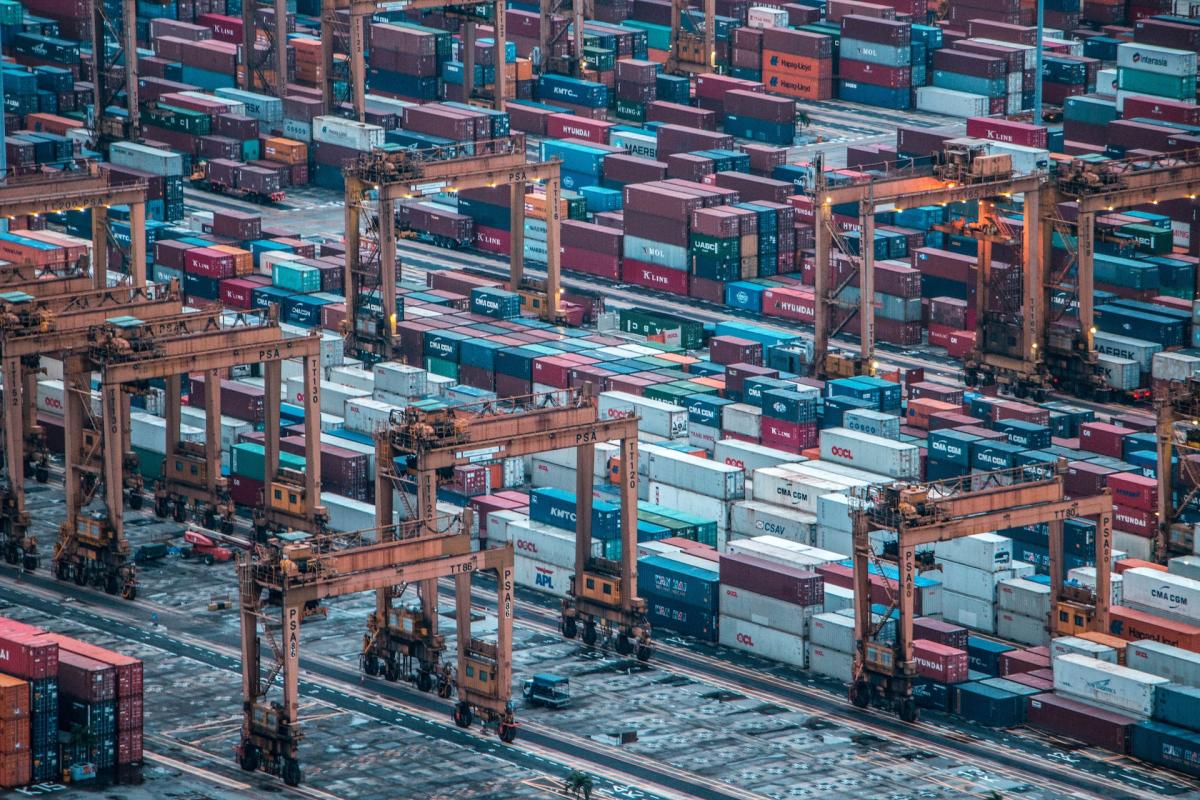Kerala’s Draft Export Policy: Paving the Way for Global Trade 2023

Kerala’s Draft Export Policy: Paving the Way for Global Trade 2023
The southern Indian state of Kerala, known for its picturesque landscapes, rich cultural heritage, and high literacy rate, has always been a unique entity within the country. It is now taking a significant step towards enhancing its global presence through the release of its draft export policy.
This ambitious move aims to bolster the state’s economy, promote sustainable development, and strengthen its position in the international market.

A draught export promotion programme (EPP) that incorporates several incentives and other institutional supports for stakeholders has been developed by the Keralan government.
In order to give exporters access to the vast array of superior products and services provided by the state, the draught policy persuasively argues in favour of implementing focused plans and activities.
Kerala State Industrial Development Corporation (KSIDC), the state’s investment promotion organisation, drew up the policy on behalf of the Department of Industries and Commerce (DI&C).
Notification of the final policy is anticipated by January 2024. A number of encouraging initiatives are put up by the EPP, one of which is a district-oriented strategy to access external markets for goods originating from various areas.

Kerala is already a well-known exporter of a wide range of goods, including tea, spices, seafood, ayurvedic and medical items, travel, and IT and ITeS services. Nevertheless, there is a great deal of room to grow the revenue-generating industry by calculated steps like building a value chain and expanding the list of products and services it exports.
The draught EPP identifies the following focus sectors: defence and aerospace; electronics and ancillary engineering and technology; ayurveda and pharmaceuticals; healthcare; engineering goods; petrochemical products; organic and inorganic chemicals; spices; horticulture and agriculture products; and textiles and garments.
The primary objective of the draft export policy is to diversify Kerala’s export basket. Historically, the state has relied heavily on remittances from the Gulf countries, which is not a sustainable economic model. By promoting a broader range of exports, Kerala aims to reduce its dependency on remittances.

Kerala has vast potential in agriculture and food processing, with its fertile land and abundant natural resources. The export policy seeks to harness this potential by promoting the export of agricultural products, spices, and processed foods. This will not only increase income for local farmers but also position Kerala as a hub for high-quality food products.
Kerala is renowned for its traditional handicrafts and artisanal products. The export policy aims to provide a platform for local artisans and craftsmen to showcase their talents on the global stage, thereby preserving and promoting Kerala’s rich cultural heritage.
Kerala’s tourism industry is a major contributor to its economy. The export policy emphasizes sustainable tourism by promoting eco-friendly practices and responsible tourism. This will not only attract more tourists but also generate foreign exchange earnings.
To compete on the global stage, Kerala recognizes the importance of technology and innovation. The export policy encourages investments in research and development, technology adoption, and skill development to enhance the state’s competitiveness in the global market.
Kerala plans to establish trade promotion offices in key international markets to facilitate market access for its exporters. These offices will provide valuable information, market research, and assistance to local businesses seeking to export their products.

The state government will invest in improving export infrastructure, including transportation, logistics, and warehousing facilities. This will help reduce costs for exporters and make Kerala a more attractive destination for foreign buyers.
The export policy places a strong emphasis on skill development programs to enhance the capabilities of the local workforce. This will ensure that Kerala can meet the demands of global markets with skilled labor.
To meet international standards and regulations, Kerala will establish quality control and certification centers. This will help ensure the quality and safety of exported products, instilling confidence in foreign buyers.
Kerala’s draft export policy is expected to contribute significantly to the state’s economic growth. By diversifying its exports and promoting various sectors, it can reduce economic vulnerabilities and create new income streams.
The policy’s focus on skill development and job creation will lead to increased employment opportunities for the state’s youth. This could potentially reduce the outmigration of Kerala’s workforce to other states and countries in search of employment.
The emphasis on sustainable practices in tourism and agriculture will help preserve Kerala’s natural beauty and cultural heritage, ensuring that future generations can also benefit from these resources.
As the economy grows and job opportunities increase, the overall standard of living in Kerala is expected to rise, positively impacting the quality of life for its citizens.
Kerala’s draft export policy marks a significant step toward economic diversification, growth, and global recognition.

By fostering a conducive environment for export-oriented businesses, promoting sustainable practices, and focusing on innovation and skill development, the state is poised to realize its full potential in the global market.
As the policy is finalized and implemented, it holds the promise of transforming Kerala into a major player in India’s export landscape while preserving its unique cultural and environmental assets.





